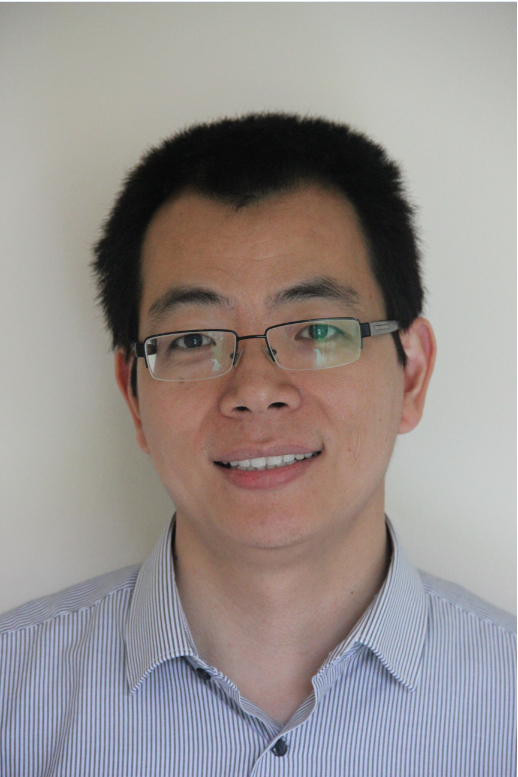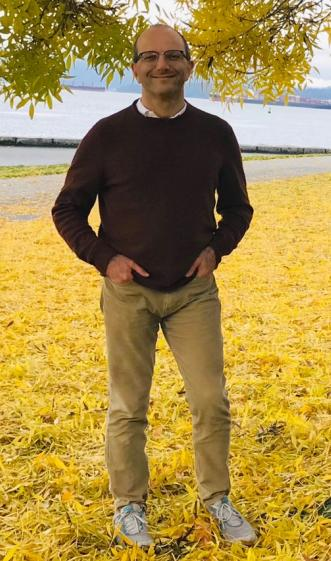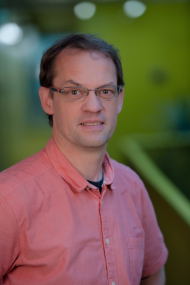
Bio: Zhiguo Ding (S’03-M’05-F’20) received his B.Eng from the Beijing University of Posts and Telecom- munications in 2000, and the Ph.D degree from Imperial College London in 2005. From Jul. 2005 to Apr. 2018, he was working in Queen’s University Belfast, Imperial College, Newcastle University and Lancaster University. Since Apr. 2018, he has been with the University of Manchester as a Professor in Communications. From Oct. 2012 to Sept. 2022, he has also been an academic visitor in Princeton University. Dr Ding’ research interests are B5G networks, game theory, cooperative and energy harvesting networks and statistical signal processing. He is serving as an Area Editor for the IEEE Open Journal of the Communications Society, an Editor for IEEE Transactions on Vehicular Technology, and was an Editor for IEEE Wireless Communication Letters, IEEE Transactions on Communications, IEEE Communication Letters from 2013 to 2016. He recently received the EU Marie Curie Fellowship 2012-2014, the Top IEEE TVT Editor 2017, IEEE Heinrich Hertz Award 2018, IEEE Jack Neubauer Memorial Award 2018, IEEE Best Signal Processing Letter Award 2018, Friedrich Wilhelm Bessel Research Award 2020, and IEEE SPCC Technical Recognition Award 2021. He is a Fellow of the IEEE, a Distinguished Lecturer of IEEE ComSoc, and a Web of Science Highly Cited Researcher in two categories 2021. Title: Recent Advances in Non-Orthogonal Multiple Access in 6G Wireless Networks Abstract: With the current rollout of 5G, the focus of the research community is shifting towards the design of the next generation of mobile systems, e.g., 6G mobile networks. Non-orthogonal multiple access (NOMA) has been recongized as an essential enabling technology for the forthcoming 6G networks to meet the heterogeneous demands on low latency, high reliability, massive connectivity, improved fairness, and high throughput. The principle of NOMA is to encourage users for spectrum sharing, where multiple users are served in the same resource block, such as a time slot, subcarrier, or spreading code. The aim of this talk is to provide an overview of the latest research results and innovations in NOMA technologies as well as their emerging applications, including terahertz (THz) communications, backscatter communications (BackCom), intelligent reflecting surfaces (IRS), mobile edge computing (MEC), etc. Future research challenges regarding NOMA in B5G and 6G are also presented. The slides of this speech can be found here

Bio: Jonathan Jedwab's research interests lie in applying discrete mathematics to solve theoretical and practical problems in digital communications, especially by using the results of exploratory computation. After completing his studies at the University of Cambridge, he worked for 14 years as a mathematics consultant at Hewlett Packard Research Labs in the United Kingdom. He moved to Vancouver, Canada in 2003 to join the Department of Mathematics at Simon Fraser University. He is grateful every day to live in such a beautiful and welcoming city. Title: Constructions and restrictions for balanced splittable Hadamard matrices Abstract: A Hadamard matrix is balanced splittable if some subset of its rows has the property that the dot product of every two distinct columns takes at most two values. Hadamard matrices with this additional property provide new opportunities for advantageous signal design beyond those already recognized for Hadamard matrices. We use combinatorial analysis to restrict the parameters of a balanced splittable Hadamard matrix to lie in one of several classes. An important consideration is whether the strongly regular graph associated with the balanced splittable Hadamard matrix is primitive or imprimitive. We construct new infinite families of balanced splittable Hadamard matrices in both the primitive and imprimitive cases. A rich source of examples is provided by packings of partial difference sets, from which we construct Hadamard matrices admitting a row decomposition so that the balanced splittable property holds simultaneously with respect to every union of the submatrices of the decomposition. The slides of this speech can be found here

Bio: Arne Winterhof received the Ph.D. degree in mathematics in 1996 from the Technical University of Braunschweig. In 2001 he received the postdoctoral lecture qualification (Habilitation) from the University of Vienna. He awarded the Hlawka Prize in 2004 and the Advancement Award of the Austrian Mathematical Society in 2010. From 1999 to 2002 he worked as research scientist at the Institute of Discrete Mathematics of the Austrian Academy of Sciences in Vienna and from 2002 to 2003 at Temasek Laboratories at the National University of Singapore. Since 2003 he has been with the Johann Radon Institute for Computational and Applied Mathematics of the Austrian Academy of Sciences in Linz. He is on the editorial boards for Designs, Codes and Cryptography (DCC), Cryptography and Communications: Discrete Structures, Boolean Functions and Sequences (CCDS), Finite Fields and Their Applications (FFA), Journal of Uniform Distribution Theory (UDT) and Advances in Mathematics of Communications (AMC). He was co-editor of Sequences and Their Applications SETA 2008 and 2014. He has published more than 150 papers in international refereed journals and conferences in finite fields and their applications, in particular, analysis of pseudorandom sequences. He co-authored with Harald Niederreiter the monograph Applied Number Theory. Title: Pseudorandom Sequences Derived From Automatic Sequences Abstract can be found here The slides of this speech an be found here
